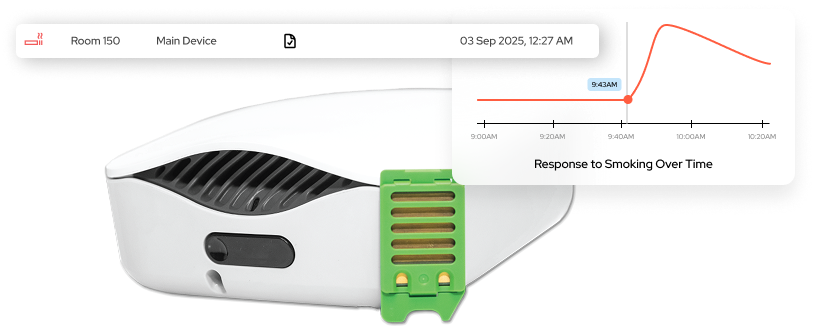

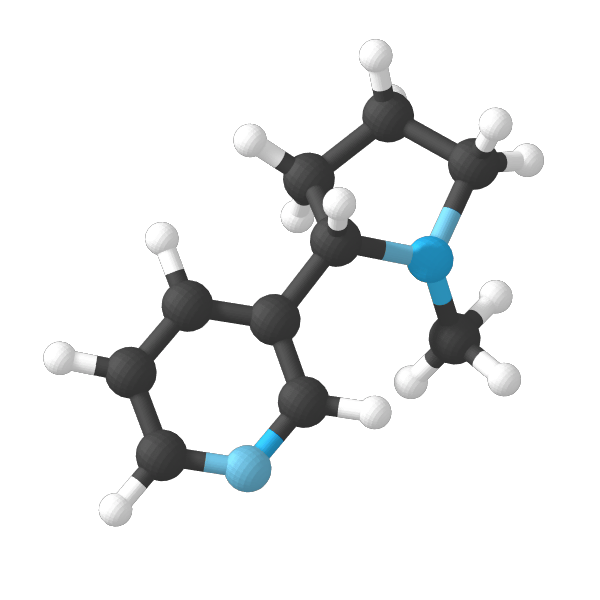
20 Years of Research
Leverage proprietary molecular technology based on 20 years of Ivy League research funded by the National Institute of Health.
Scientific
Proof
Enforce environmental policies with confidence and court-proven scientific evidence when violations occur.
FreshAir
Certified
Monitor for and certify the absence of common air quality contaminants and pollutants with molecular technology.
Fresh Air Matters
of guests are concerned with health and wellness.
of non-smoking rooms are smoked in monthly.
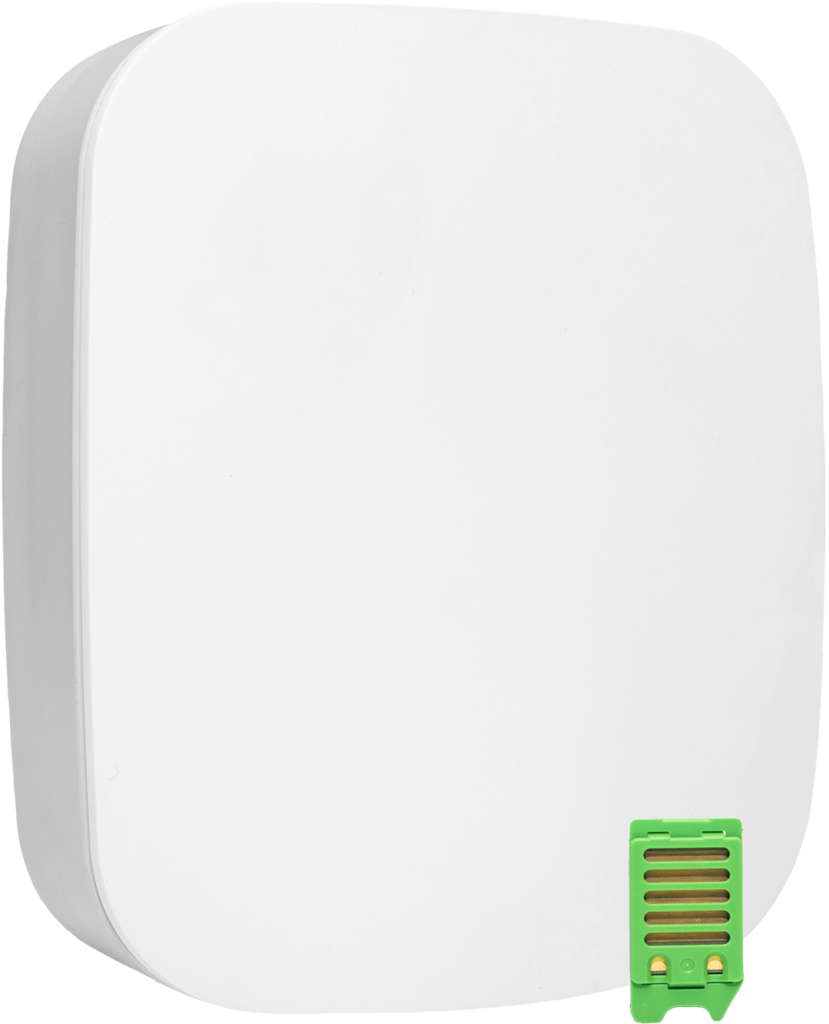
The solution to better air quality?
It's pure science.
Wellness
FreshAir Sensor’s mission is to improve lives through novel sensor technology®.
20 Years of Research
Our patented molecular sensors are based on over 20 years of research and development at Dartmouth College.
Proof
FreshAir Sensor is the only solution to monitor for and certify the absence of common air quality contaminants.
Court Proven
Our molecular sensor technology helps enforce no-smoking/vaping policies with indisputable court-proven evidence.
In Room Air Quality Data
Our molecular sensors continuously monitor and track air quality data, the presence of Volatile Organic Compounds (VOCs).
Ongoing Research
Our chemistry and engineering teams have an active, ongoing research and development agenda to expand the application of molecular sensors and develop applications for additional markets and needs.
Benefits
Molecular Sensor Technology
Patented, Proven
Tamper Proof
Locked Down
Easy to Install
2-3 minutes
Wifi
Instantly connect to your network
Immediate Alerts
Realtime Reporting
Mobile App
Anytime anywhere reporting
How It Works
The science behind molecular sensors
Molecular Sensor (ours)
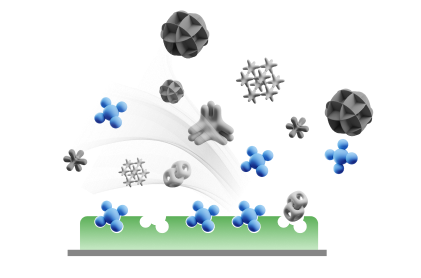
Molecularly specific polymer bonds only with targeted tobacco and/or marijuana molecules while ignoring any other type of non-targeted molecule.
Alerts are triggered only by the targeted tobacco and marijuana molecules.
The sensor functions similarly to biological receptors in the body.
The sensors are highly sensitive and specific, binding only with target molecules in tobacco smoke and marijuana smoke.
The sensors reset following smoking detection for continued monitoring.
Particle Detector (theirs)
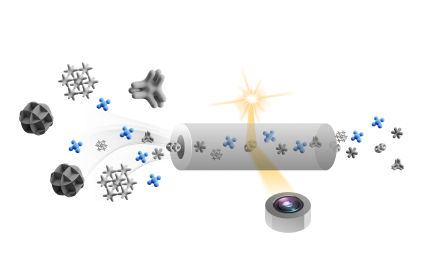
Particle detectors are not specific, and detect any particle of the target size.
Requires a large number of particles to trigger.
Does not distinguish between tobacco/ marijuana smoke and steam, burnt food, candles, or other common particulates.
Discrete Alerts
Enforce, Enhance, and Save
Enforce smoking policies, enhance the guest experience, and save on cleaning costs with data alerts and scientific evidence any time unauthorized smoking of tobacco and/or marijuana occurs.
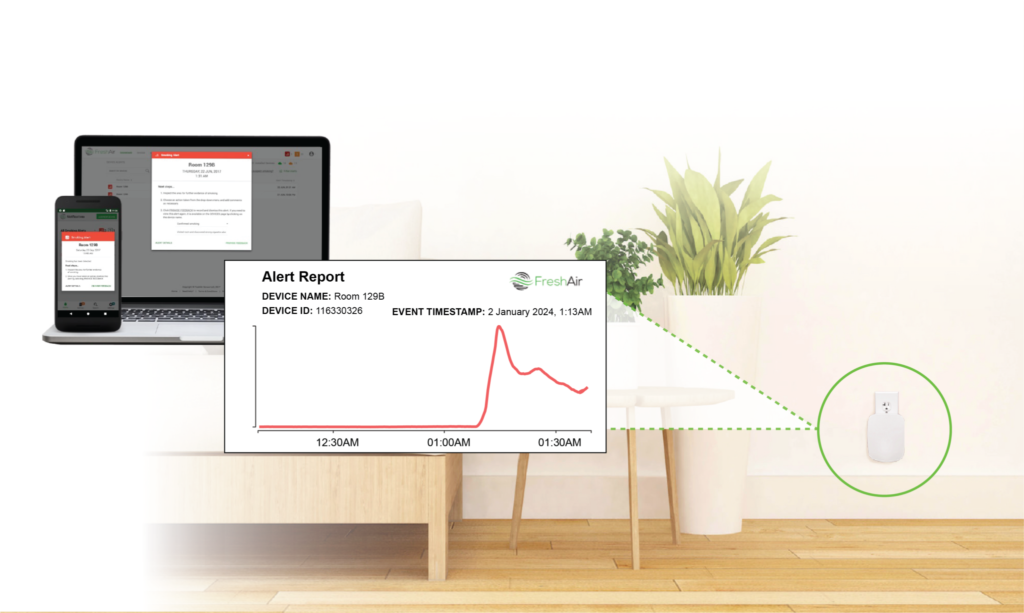
Peer-Reviewed Journal Articles
The Science is Clear


S. Antwi-Boampong, J.S. Peng, J. Carlan and J.J. BelBruno
Sensors Journal, IEEE 14, 1490-1498 (2014)
A. Richter and J. J. BelBruno
Journal of Applied Polymer Science 124, 2798-2806 (2012)
Detection of secondhand cigarette smoke via nicotine using conductive polymer films
Y. Liu, S. Antwi-Boampong, and J. J. BelBruno
Journal of Nicotine and Tobacco Research, ntt007, (2013
Detection of formaldehyde vapor using conductive polymer films
S. Antwi-Boampong, J. J. BelBruno
Sensors and Actuators B: Chemical Vol. 182, 300-306, (2013)